I won but why did I have to fight for pain treatment in the first place?
This is typical treatment for an injured worker in Australia.
What was the real point of my stubbornness and the on going battle?
I fought for seven years for two reasons:
- to point out how far the Medical Panels fell short with their ‘binding diagnosis’ of my condition in 2009, and
- to stop this bogus diagnosis from being used as some kind of rightful excuse to avoid support for my treatments:
I submitted two conciliation requests end of last year – one for each of my 2011 peripheral stim and 2015 sacral stim. I won’t bore you with the reasons why I had to apply separately but remember workers compensation makes alot of money from making the application process so complex. And they do this so that the injured worker gives up.
The below is the conciliator’s December 2017 response to my application for the 2011 peripheral stim:
I refer to your Request for Conciliation in relation to the decision dated 24 June 2011 rejecting your request for surgery.
As you are aware, I wrote to [insurer] seeking comment on your application for late lodgement and that they have responded by email dated 13 December 2017 objecting to the same. This in itself is not a reason for me to maintain my decision to reject late lodgement but it has prompted a further review of the same.
In my review of this matter I have noted that [insurer] have made a further decision (dated 23 November 2017) to reject payment for a procedure in 2015. In that decision [insurer] refer to a Medical Panel opinion dated 16 November 2009, which I have read. The Medical Panel states, in part: ” .. the worker is now not suffering from any physical medical condition relevant to the claimed injury’. There was a further Medical Panel opinion issued on 15 December 2011 which similarly stated: “As there is no current intrinsic medical condition of the lower back relevant to the accepted lower back injury … “. Not long after this second Medical Panel opinion was issued, your Request for Conciliation in relation to the decision dated 24 June 2011 was withdrawn. You had legal advice at the time that you withdrew your dispute, therefore you had ample opportunity for the matter be concluded at conciliation at the time.
Having reviewed the matter further I advise that I am not prepared to reverse my decision to reject your application for late lodgement.
Unacceptable!
My response
The above letter was sent to me by a Senior Technical Officer (STO) working at the Accident Compensation Conciliation Service (ACCS) who was also following up my conciliation application for the 2015 sacral stim. I believe he was trying to help – or should I say, doing his job.
I sent him this response:
(STO), I do appreciate your reply but these processes are so difficult and when they become complex it becomes hard to fight and the system is very well aware of it.
The conciliator is referring and accepting the information, that to me and to the chronic pain world, makes no sense and would be seen as an uninformed and an inexperienced opinion for chronic pain health matters. My pain specialist would be mortified. Why would you not want a leading Australian pain specialist to comment so you could really sort this out and make it fair?
There’s no point of view from the injured worker here, it’s all the point of view of the system.
The conciliator will only refer to the same information in her consideration for the 2015 implant… why wouldn’t she? What else does she have to work with? Certainly not my information, not my evidence, not my pain specialist’s report… The conciliator has not asked me for more information and you are just asking me for more paperwork. More humiliation. To make it more exhausting…
I explained why I had to withdraw and it was not understood. It was not accepted. There is no sign of understanding here. Nothing fair. I don’t expect favours but I do expect fair and this is not that. This is pushing for me to back off and it works. It works many times I imagine.
These treatments have saved my life and got me back to work and they can and will do so for so many others now (not to mention prevent drug dependency – all a language that you are all showing you can’t and don’t want to comprehend). If the system can’t find a simple way to understand that and to help someone manage their work injury, then there is something very wrong with the system.
Just think about how many wages have been involved until this process for something that is so obvious. Then they say the injured worker rips off the system. It’s not the worker in this instance…
I thought of one last shot
I contacted my local member, the Hon Lisa Neville who heavily advertises her offers of support in local media.
Years before, I had previously written to a Minister and only attracted a template response. But since moving suburbs (and taking into account the huge political shuffles in recent years), I thought it might be worth a try again.
The Hon Lisa Neville’s office were incredible and so polite. They treated me with so much respect (well, they had standard manners actually) but it surprised me because that’s not the treatment an injured worker is usually met with.
The staff called to clarify what help I was actually seeking from them, they listened and gave clear information about how they were going to try and help me and explained when they would likely be in touch. They kept in close contact, they communicated when they were going to break for the holidays and when Minister Robin Scott (who has the workers compensation portfolio) would be back in Parliament.
Meanwhile, I had no communication from the ACCS and eventually a WorkCover Assist employee called to say the insurer had an offer of settlement for me. Extremely welcome but a bit weird and out of the blue after initially hearing a definite ‘no’.
I had not received any reply in regard to the 2015 sacral stim conciliation application that I did finally submit after receiving the ACCS STO’s email suggesting that I do so.
I emailed Lisa Neville’s office to follow up. They had expected that I had been contacted by Worksafe and/or my insurer and that I’d been informed of this letter that was sent by Minister Robin Scott. (The letter also includes reference to my asking Lisa Neville’s office if my case could be settled forever):
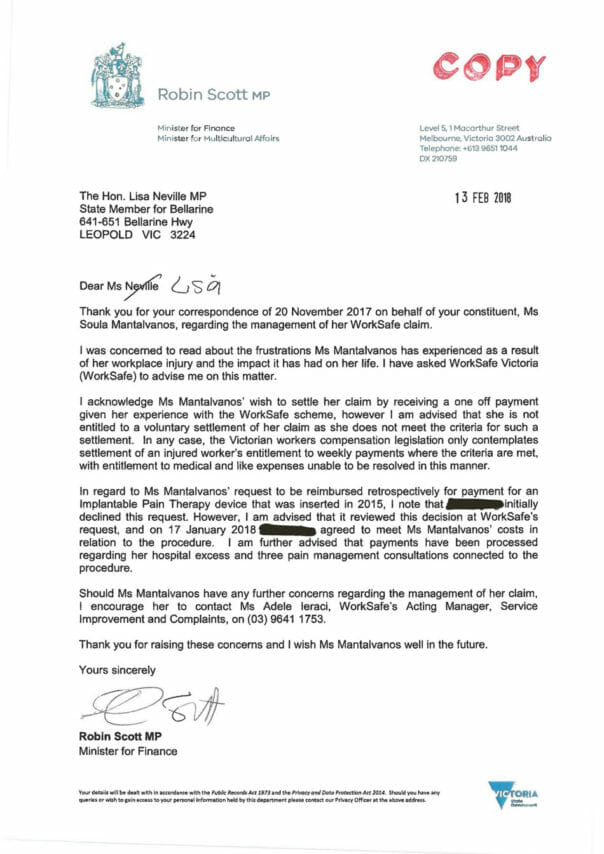
I’m not surprised I wasn’t contacted.
And I wasn’t surprised that my insurer ignored the application for reimbursement of the 2011 peripheral stim and somehow chose to only reimburse the 2015 sacral stim – there are thousands of dollars of reasons why! The 2011 peripheral stim attracted a much larger out of pocket expense than the 2015 sacral stim.
I pointed out this oversight to WorkCover Assist and fought a little more before the majority of the out of pocket expenses were settled. I didn’t have anaesthetist’s invoices from the 2011 operations so these could not be reimbursed.
Time for change
There is much putrid and unacceptable behaviour in the process I’ve just experienced for almost 6 months but I will take both, Lisa Neville and Minister Scott’s responses and hold onto the expression of ‘concern’, using it as hope that this system will change one day and injured workers won’t be treated like I have been. I hope that the focus shifts from the current ugly insurer tactics to a focus on recovery, return to work and more respectful treatment within that process.
We’re in a wonderful global movement right now and it is encouraging people to speak up about workplace corruption and the poor and abusive culture within workplaces. I believe WorkSafe and their insurers need to step up and be accountable for the way they’ve managed claims and treated injured workers. Theyve left a substantial trauma trail over the past decades.
In my 11 years of living with chronic pain – a result of my work injury, I can whole heartedly say that the trauma I live with has not come from the injury. The trauma I’ll take to the grave comes from my interaction with the ACCS*, WorkSafe and the insurer.
The damage is irreparable. The damage is present daily as I walk on the street with the ever present feeling that someone is filming me. The damage exists in far more ways than this in my daily life.
Injured workers hurt themselves at work and in some cases sustain life long injuries that prevent them from ever returning to work. This is what I’m living. This is where the system failed me with the poor excuse of ‘catching the baddies’.
Poor excuse. Poor, poor excuse for treating honest people so disrespectfully!
*This post is especially dedicated to the conciliator who during a 2011 meeting had a giggle to the insurer rep muttering, ‘that’s a fight for another day‘ at my request to consider reimbursement for my stimulation treatment.



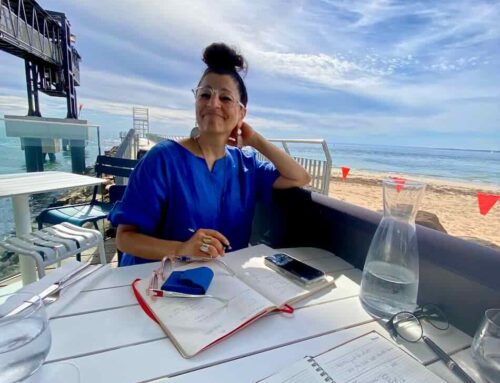


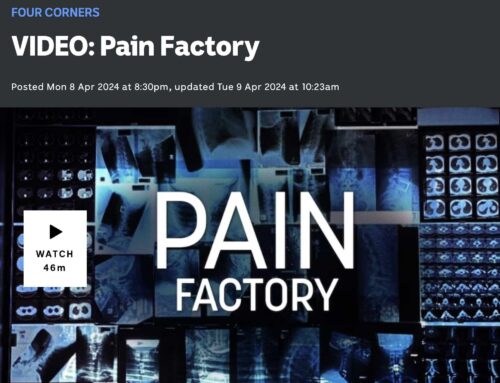
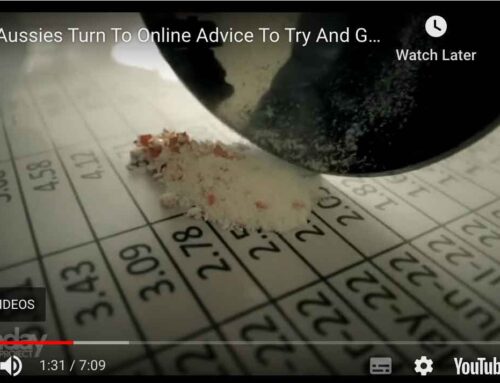

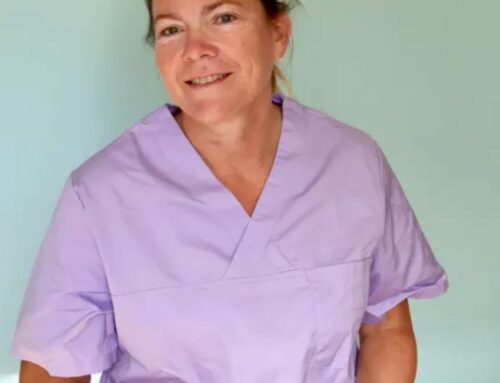
Thank you for your encouragement and support Dr Gard. I really appreciate the comment.
You stand for what is right Soula, your story is such an inspiration to others. The message is clear, don’t give up for what is right, even the times does not favoring us. Being patient is the key to won.
Too right! A conversation way passed the use by date. Thank you for your support and help along the way.
Congratulations to you and Theo. Enough said!
Thank you Frances, I appreciate your support every step of my way! I think it will take one person to speak up and then it will all unravel. As it has happened for many other organisations. TPD did treat me worse – they filmed me INSIDE my home from a carpark across the road. I took the matter to the Ombudsman and I was so unwell that I had to withdraw from the very last step which was to have the hearing. They settled the matter, paid me the wages they owed me for the time I wasn’t being paid by workcover in the lead up to conciliation and made me sign a statement that agreed I would not go to the media with my story and that with accepting the 3 months of wages, I agreed to void my policy with them. I will never forget holding their documentation that arrived in the mail nor their investigator who lied saying she was coming over to assess my work skills but instead used my information, twisted the info around in attempt to make it all work for them. I won’t shutup about it. I’ve been meaning to write a post but just haven’t got around to it. Film and record everything you can. And don’t back out at the last step!!! xxx
Congratulations Soula, Im so pleased that you finally got some $$$ but I hear what your saying about the collateral damage caused by the work cover system. No amount of money will ever take away the feelings created by the degrading, disrespectful, hurtful treatment that we as injured workers have to endure from this system that is so broken. I wish there was some way of naming and shaming the insurance companies that are so greedy and have no care factor for injured workers. Im about to embark on claiming the TPD insurance that is part of my superannuation. My GP even warned me that they will treat me just as badly as work cover. Take care xoxo